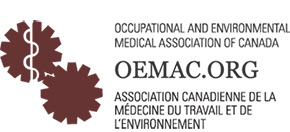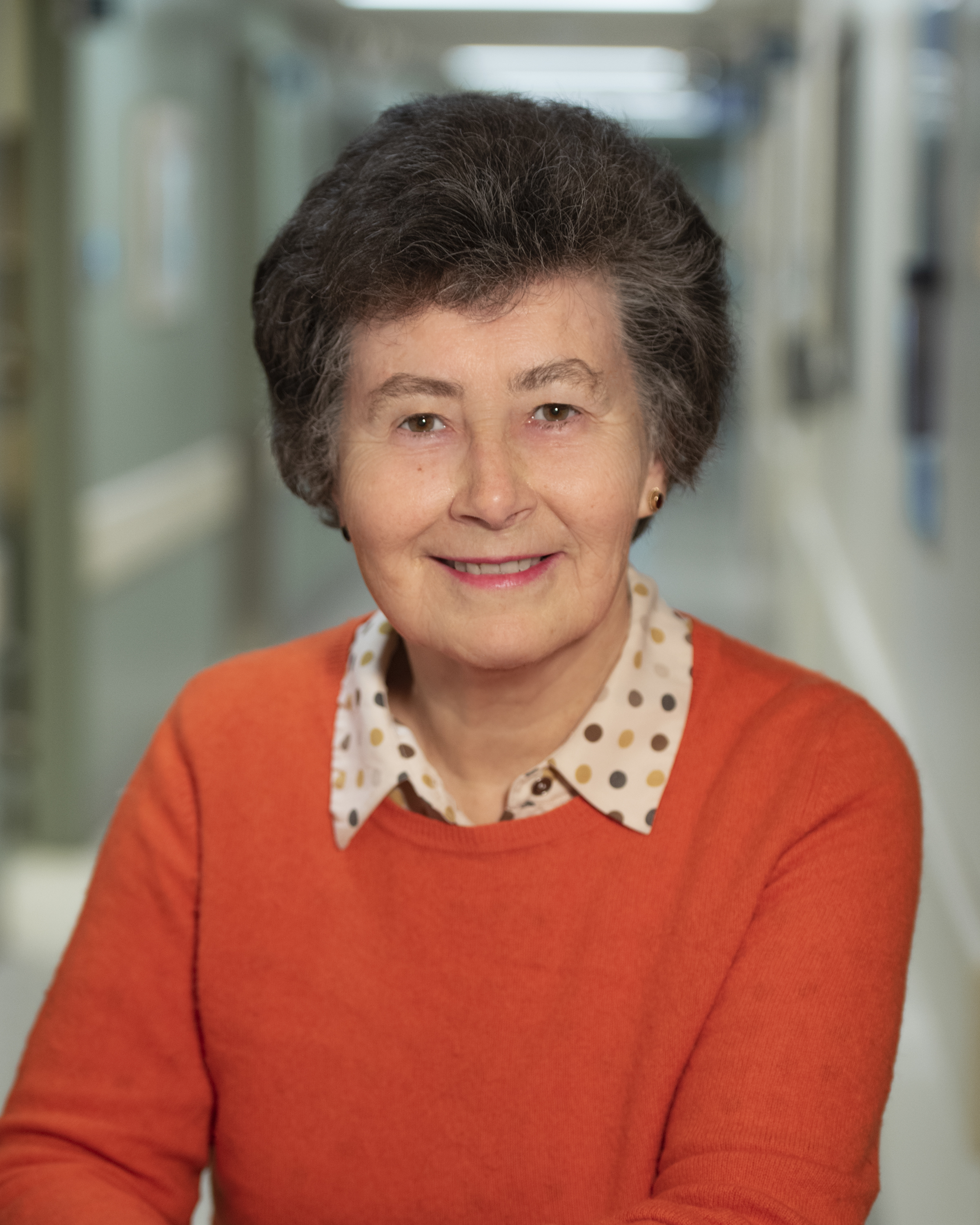OEMAC Meritorious Service Award Recipients
2023
Deborah Hellyer
Allen Kraut
Deborah Parachin
2022
No recipient
2021
No recipient
2020
No recipient
2019
No recipient
2018
Susan Tarlo
Sidney Siu
2016
Doug Hamm
Robert Hillis
2015
Maureen Cividino
Ken Corbet
2014
Martine Baillargeon
Nicola Cherry
Louis Patry
2013
Steven Martin
Oscar Howell
Howard Hamer
2011
Jeremy Beach
2010
Suzanne Arnold
John Quinn
2009
Joel Andersen
2008
Gilles Theriault
2005
J. Donald Johnston
David Dunham
2004
Robert Kosnik
Sol Sax
2003
Lily S. Cheung
2002
Tee Guidotti
D. Linn Holness
2001
Ciaran O’Shea
Pat Mills
2000
Jean Anne Farmilo
Bernard Gascon
W. Keith C. Morgan
1999
Albert Cecutti
Ernest Mastromatteo
Walter F. Prendergast
1998
Ian M.F.Arnold
Alice Dong
James R. Nethercott
1997
C.F. Muir
1996
John R. Martin
1994
MacDonald Caza
1993
John Markham
Rodney May
John L. Weeks
1992
John W.F. Cowell
Elizabeth R. Dawson, R.N.
Edward S. Gibson
James P. Gracie
Peter Pelmear
1990
James W. Charters
Fred C. Mills
1989
Franklyn Hicks
Blair Orser
1988
J.A. David Brunet
Serge Donati
1987
J.H Baillie
Douglas R. Warren
OEMAC Meritorious Service Award Recipients
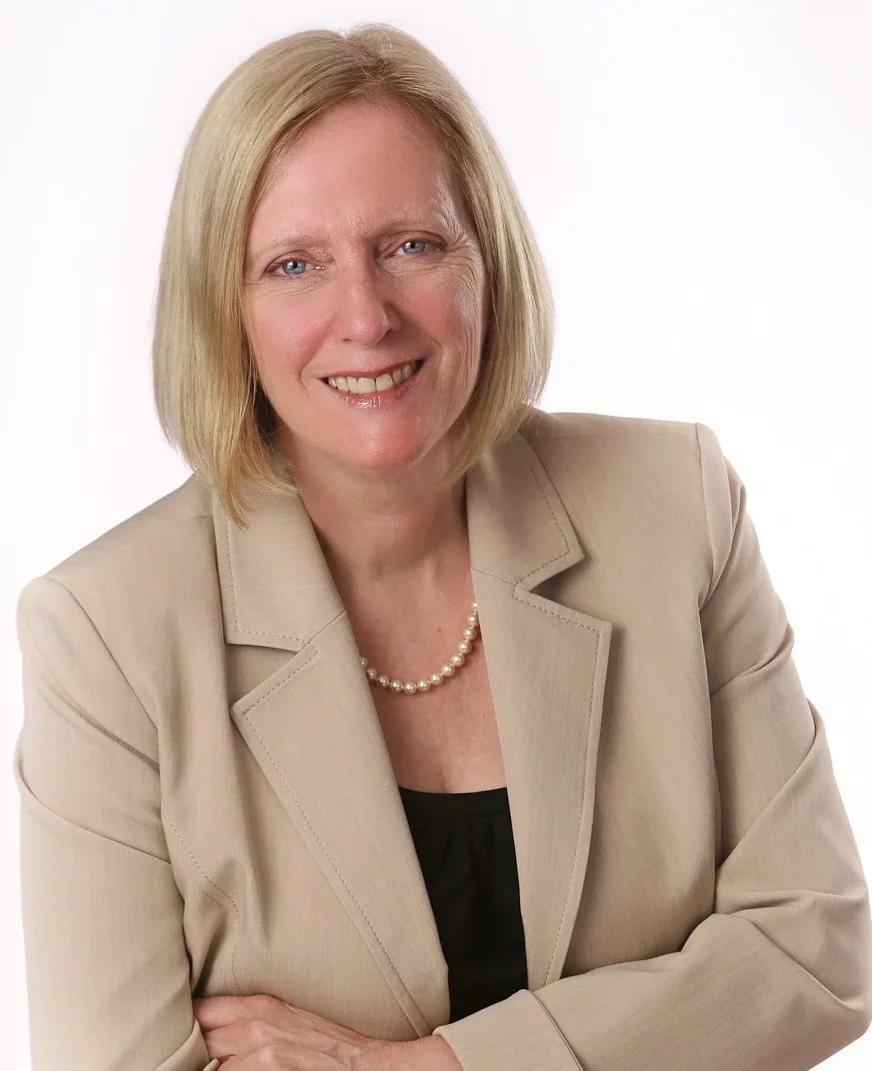
We pay tribute to the late Dr. Deborah Jean Hellyer, a remarkable individual who dedicated her life to making a positive impact in occupational and environmental medicine. Although she is no longer with us, her legacy lives on, and it is with deep respect and admiration that we recognize her with the Meritorious Service Award from OEMAC.
- Collaboration and Advocacy: Dr. Hellyer’s commitment to the well-being of workers and her tireless advocacy for their rights made her a pivotal figure in the occupational medical field. For many years, she collaborated with various stakeholders, representing the voice of workers while maintaining her unwavering integrity and compassion.
- Local and Global Engagement: Dr. Hellyer’s contributions extended beyond our borders. She actively participated in numerous committees dedicated to Occupational and Environmental Health, locally, nationally and internationally. Her global perspective enriched her work and brought about positive change.
- Educator and Mentor: Dr. Hellyer was both a practitioner and an educator. She played a vital role in teaching Occupational medicine to medical students at the Windsor Campus of Western University. Her dedication to passing knowledge and skills to the next generation was commendable.
- A Voice for the Workers: We share the heartfelt tribute from Antonella Ciampa, WDLC Day of Mourning committee chair and Greater Essex ETFO first vice president, who aptly summarized Dr. Hellyer’s impact: “Deborah was a true leader in our greater community and the province of Ontario over the years on issues of workplace health and safety, environmental issues, and cancer prevention. She continually brought her message of prevention and protection for workers to the media, community workshops, and her medical colleagues.”
- A Well-Deserved Recognition: We wholeheartedly agree with the sentiment that Dr. Deborah Jean Hellyer deserves the Meritorious Service Award for her selfless dedication and outstanding contributions to the field. While she may no longer be with us, her legacy will continue to inspire and guide us in pursuing a safer and healthier workplace for all.
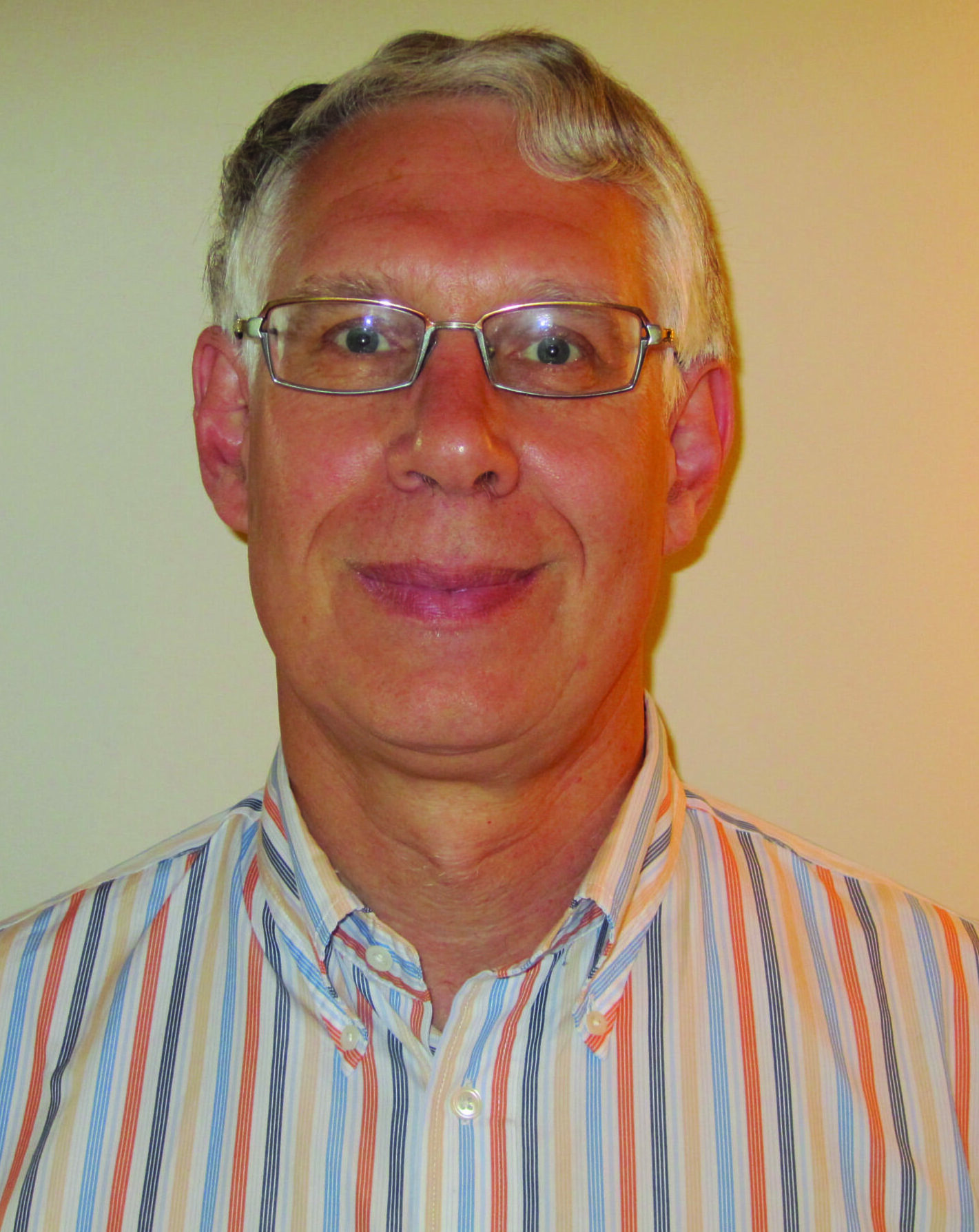
Dr. Kraut’s journey is a testament to his unwavering dedication to improving healthcare. Here’s a glimpse into his remarkable career:
- Education: Dr. Kraut graduated from the University of Manitoba medical school and pursued specialty training in Internal Medicine in Manitoba, followed by Occupational Medicine at the renowned Mount Sinai Medical Center in New York City.
- Academic Excellence: He is an associate professor at the University of Manitoba, contributing his expertise to the Departments of Internal Medicine and Community Health Sciences.
- Clinical Expertise: Dr. Kraut has been a pillar of clinical occupational medicine in Winnipeg, with a longstanding presence at the Health Sciences Center and the MFL Occupational Health Center. His invaluable service extends to 30 years as an attending physician in the Internal Medicine clinical teaching units at the Health Sciences Center.Medical Leadership: As the Medical Director of Occupational Health Winnipeg Regional Health Authority Integrated Sites, Dr. Kraut has played a pivotal role in safeguarding the health and well-being of countless individuals. He has generously offered his expertise as a consultant to various industry, labour, and government organizations, as well as two Canadian Workers’ Compensation Boards.
- Scholarly Contributions: Dr. Kraut’s impact extends to the academic realm, where he has authored publications covering a wide array of internal medicine and occupational health topics. His commitment to advancing knowledge is further reflected in his role on the American Journal of Industrial Medicine editorial board.
- Passion Beyond Medicine: Outside the world of medicine, Dr. Kraut is an avid cyclist, demonstrating his dedication to maintaining a balanced and active lifestyle.
Dr. Allen Kraut’s exemplary journey in the realm of occupational and environmental medicine serves as an inspiration to us all. We applaud his unwavering commitment to healthcare excellence and celebrate his richly deserved recognition with the Meritorious Service Award.
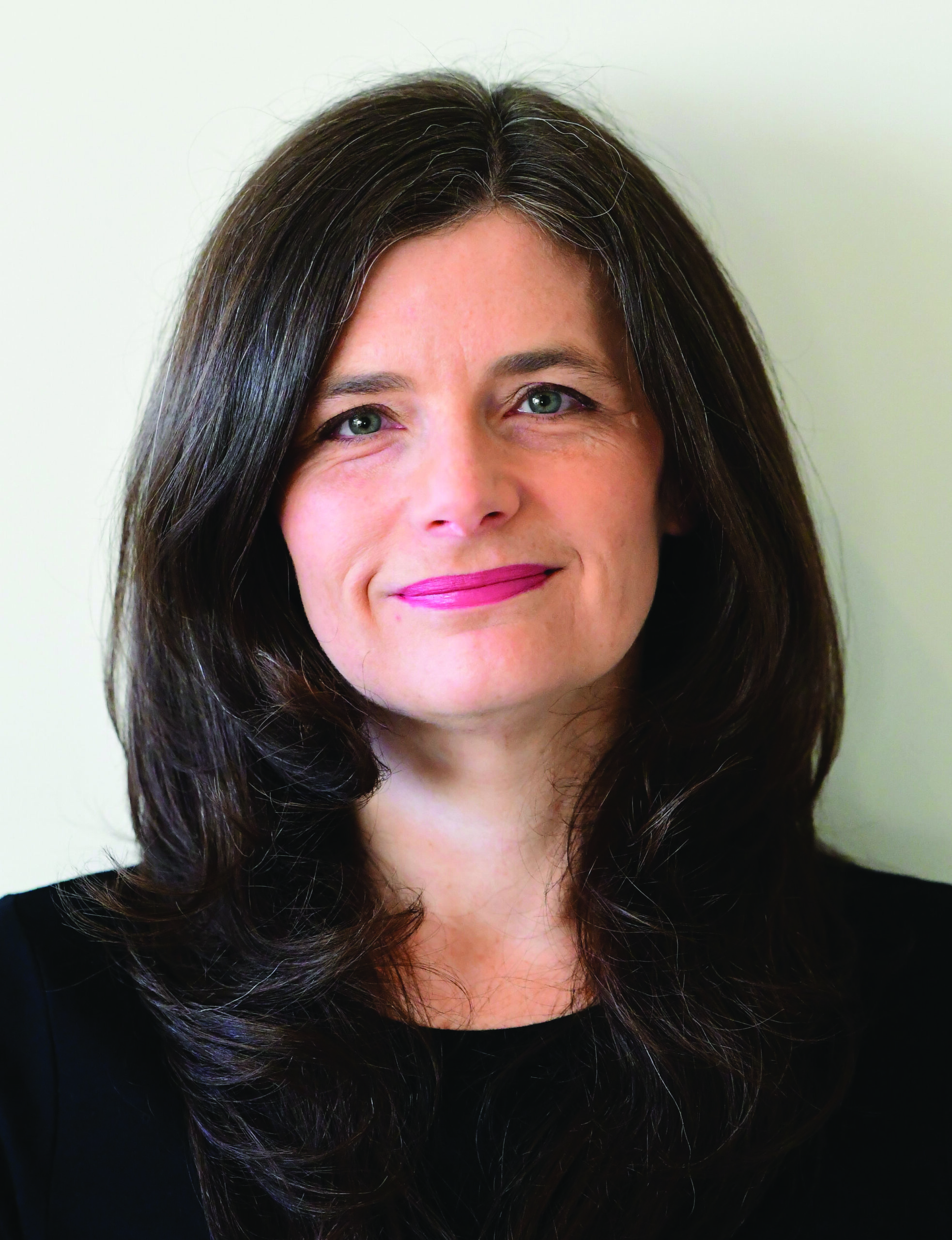
Deborah’s dedication and outstanding occupational and environmental medicine contributions have left an indelible mark on our community. Her unwavering commitment and remarkable achievements include:
- Organizer for “Day in Occ Med” with the Ontario Medical Association (OMA) since 2004.OMA Member of the Executive Occupational & Environmental Medicine Section since 2004, holding various roles including Chair, Vice-Chair, and Member at Large.
- Invaluable service on the program committee for the OEMAC Conference for many years.
- Serving as a tutor for the Foundation Course in Occupational Medicine at the University of Alberta.
- Active participation on the Advisory Committee for two pivotal initiatives:
1. Centre of Research Expertise for the Prevention of Musculoskeletal Disorders (CRE-MSD) at the University of Waterloo.
2. Project ECHO Occupational and Environmental Medicine hosted by the Institute for Work and Health (IWH). - Dedication to governance roles:
1. Current Treasurer and Director (Ontario) at OEMAC – steering the ship towards success.
2. A key role on the Board of Directors at the Institute for Work & Health (IWH). - Making a mark in education: As a guest lecturer and Advisory Committee Member for the McMaster Program in Occupational Health and Environmental Medicine from 2006 until its conclusion in 2010.
Deborah Parachin’s relentless pursuit of excellence and tireless efforts to advance the occupational and environmental medicine field is truly commendable. Her dedication inspires us all, and we are privileged to have such a remarkable individual as part of our community.
2018- Susan Tarlo
Dr Susan M Tarlo is a respiratory physician and a Professor in the Department of Medicine at the University of Toronto with an academic cross-appointment in the University of Toronto, Dalla Lana Department of Public Health. Her main clinical staff appointment is at the University Health Network, at Toronto Western Hospital, where she is head of the Occupational Lung Disease Clinic and has a focus on asthma and allergic respiratory disease. She has research appointments at the Gage Occupational and Environmental Health Unit in Toronto, St Michael’s Hospital Li Ka Shang Research Institute and University of Toronto Institute of Medical Science and the Centre for Research Excellence in Occupational Disease at St Michael’s Hospital where she also has a WSIB occupational lung specialty clinic. Her research interests and publications are mainly in work-related asthma and occupational allergy. She has over 200 peer-reviewed publications, and in 2018 was awarded the American Thoracic Society, Environmental, Occupational and Public Health Assembly, John Peters Award for outstanding contributions to occupational or environmental medicine through leadership in research, education or public health, and the OEMAC Distinguished Service Award.
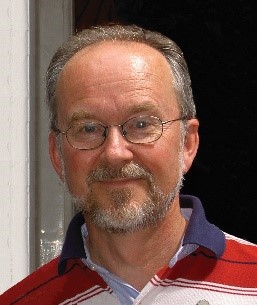
Dr. Hamm is a specialist in occupation medicine practicing in Victoria and Vancouver. He is a clinical assistant professor in the School of Population and Public Health at UBC and provides referral consultations to community physicians at the Occupational Medicine Clinic at Vancouver General Hospital and third-party assessments to employers, unions, insurers, and legal parties. He has had a longstanding interest in enhancing the occupational medicine skills of family physicians through chairing the examination committee of CBOM for 10 years and currently is co-facilitating a pilot program for the University of Alberta’s Foundation Course in Occupational Medicine in BC.
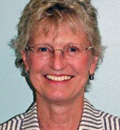
Dr. Maureen Cividino, Occupational Health Physician with St. Joseph’s Healthcare and Medical Consultant IPAC to Public Health Ontario, completed her B.Sc.N. at Lakehead University (summa cum laude) as well as her MD and family medicine residency at McMaster University.
Dr. Cividino kept a busy family practice for several years and in 1998 she obtained her CCBOM certification from the Canadian Board of Occupational Medicine and Diploma in Occupational Health and Safety (DOHS) from McMaster. From that time on she has worked in both health care and industry providing occupational health services. She was a medical advisor at Petro-Canada and Vale for several years. She has also worked in hospital health care since 1992 and continues to provide services to St. Joseph’s Healthcare Hamilton and NHS. She has maintained her Certification in Infection Prevention Control and Epidemiology originally obtained in 2008 and provides IPAC Physician support to Public Health Ontario. She is a member of the Provincial Infectious Diseases Advisory Committee (PIDAC) Infection Prevention and Control Committee. Dr. Cividino is Co-Chair of the OHA/OMA/MOHLTC Communicable Disease Surveillance Protocols Committee (CDSPC), Past-Chair of the OMA Section on Occupational and Environmental Medicine and Past- President of the Occupational and Environmental Medical Association of Canada. She has promoted the field of Occupational Health with dedication, energy, and leadership.
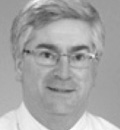
Dr. Kenneth Corbet graduated from the University of Calgary with his MD and subsequently completed residencies in both Family Medicine and Occupational Medicine. He is now an associate professor at both the University of Calgary and University of Alberta. He has taught Occupational Medicine at all levels –undergraduate, graduate sciences, graduate clinical, and continuing medical education.
Dr. Corbet possesses many achievements in his professional career. He has received many awards as a teacher including the “great teachers” award at the University of Calgary. He has developed and analyzed the membership survey for OEMAC on three occasions and recently did the same for OMSOC. He was a Royal College examiner for 10 years and chaired the exam committee from 1997 to 1999. He has contributed to the development of Occupational Medicine in Alberta as President of the section of Occupational Medicine from 2010 to 2014, as well as being Secretary Treasurer for OEMAC form 1992 to 1996 and chair of the Continuing Professional Development Committee (CPDC) for an amazing 14 years. He has chaired the planning committees for OEMAC in Alberta in 2000 and the excellent conference that was held last year in Edmonton. His passion for evidence-based fitness for duty has led to development of the CAPP standards for the offshore Oil and Gas industry and numerous CSA standards committee memberships. He has contributed to Occupational medicine in so many ways—as a teacher, a researcher, an OEMAC and OMSOC Board and executive member, but most of all as a mentor and respected advisor.
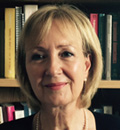
Dre Baillargeon first completed a specialist training in Plastic Surgery at the Université de Montréal and became Board Certified in this discipline. After practicing Plastic Surgery for a few years, she reoriented her practice in 1989 to Occupational Health and became medical advisor in the Occupational Health team of the Department of Public Health in Montréal. She then completed a 2nd degree training in ergonomics at the Université du Québec à Montréal in 2000 and got a certification as a Specialist in Occupational Medicine in 2011 from the Collège des Médecins du Québec when the specialty was officially recognized in this province.
Clinical Assistant Professor in the Département de Medicine and the Département de santé environnementale et de santé au travail at the Université de Montréal, she has been very active in developing occupational medicine teaching at different levels. Among other things, she has piloted a group reviewing the Medical Council of Canada (MCC) Objectives for the Qualifying Examination, for Occupational Medicine, and has recently been appointed to the Board of Examiners of the Council. She is currently setting up a group of physicians to determine the basic competencies in OM for undergraduate training across Canada. At the Université de Montréal, she is responsible of developing a curriculum in occupational medicine teaching at the undergraduate level, and has participated in the development of the Occupational Medicine residency program. She is the first author of a textbook chapter on worker’s health used by medical students at the Université de Montréal and of an article published in 2011 on the teaching of occupational medicine at the undergraduate level. She is also author or collaborator in numerous publications focusing on work related musculoskeletal disorders and ergonomic work analysis.
Currently, Dre Baillargeon practices at the Clinique de médecine du travail et de l’environnement du Centre Hospitalier Universitaire de Montréal (CHUM), serves as a medical adviser in the Department of Public Health in Montréal, and has been a medical assessor to the Commission des lésions professionnelles, the tribunal of appeal for decisions made by the Commission de la santé et de la sécurité au travail, for more than15 years.
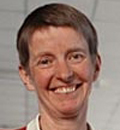
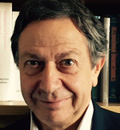
After completing his medical studies at Laval University and practicing Family Medicine for several years, Dr. Louis Patry conducted training in Ergonomics and Physiology of work at the Conservatoire National des Arts et Métiers (CNAM) in Paris. In 1990, he got a Specialty degree in Occupational Medicine from the Royal College of Physicians and Surgeons of Canada
He taught ergonomics and work physiology at Laval and McGill Universities. Since 2010, he is the Director of the Specialty training program in Occupational Medicine at University of Montreal. He also held several positions on the Specialty Committee in Occupational Medicine at the Royal College of Physicians and Surgeons of Canada including the chair position of the Specialty Committee from 2006 to 2012.
Dr. Patry led from 1996 to 2001, a project to implement a distance education training program in Occupational Health in five African countries in collaboration with McGill University and the University of Lille in France. This project was funded by the Centre for Research and International Development of Canada (IDRC) and the International Occupational Health Commission (ICOH). In 2000 he was elected on the ICOH Board and was, from 2006 to 2012, the ICOH National Secretary for Canada.
Besides his role as medical advisor in Occupational Health at the Montreal Department of Public Health, he was from 1999 to 2014, the Director of the Interuniversity Occupational and Environmental Health clinic (IOEHC) located at McGill University Health Centre (MUHC). Currently he is practicing at the Occupational and Environmental Medical Clinic located at the Centre hospitalier de l’Université de Montréal (CHUM)
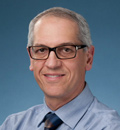


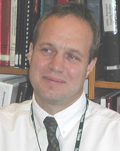

2010 – Suzanne Arnold, RN, B.A., M. Ed., Ph.D.
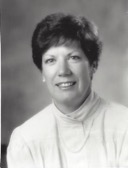
Suzanne holds an undergraduate degree from the University of Western Ontario, and a Master’s degree at the University of Toronto. Suzanne also earned her doctoral degree (PhD) from the University of Toronto.
Suzanne has been a Faculty member at Lambton College, Fanshawe College, Humber College and George Brown College in Ontario. From 1999 to 2007, Suzanne was the Associate Director of the Occupational Health Program, Master of Science degree at McGill University – On her retirement in 2007, Dr. Arnold held an appointment as Assistant Professor, Faculty of Medicine at McGill. Suzanne continues with a post-retirement appointment at McGill.
Suzanne has been invited to make numerous presentations in Canada and abroad, and has an extensive list of publications to her credit. Most recently, Dr. Arnold co-authored, with Dr. Tee Guidotti, a textbook for occupational health practitioners: “Occupational Health Services: A Practical Approach”, 2/ed. Routledge, London (UK).
Dr. Arnold has been awarded the OOHNA Lifetime Achievement Award (2000), a Certificate of Appreciation from the Ontario Hospital Association (2000), the OEMAC Meritorious Award (2010) and the COHNA Award of Excellence (2011) for her contributions to Occupational Health and to Occupational Health Nursing.
2009 – Joel Andersen, MD, MSc, CFPC, CFPC, FCBOM, CIME I am a graduate of Queens University Kingston, and am a fully qualified medical practitioner licensed by the College of Physicians and Surgeons of Ontario, and hold certification in Occupational Medicine from the Canadian Board of Occupational Medicine, since 1995. I am certified by the American Board of Independent Medical Examiners, since 1999. I have represented a variety of clients including insurance companies, corporations, unions, the legal profession, in the court setting, and am considered to be an expert witness in occupational health matters. I act as Medical Director for a number of Corporations, handling Occupational Health and Safety and accommodation/disability management Issues. I am an assistant professor in the Division of Clinical Sciences, Northern Ontario School of Medicine, and an adjunct professor in the School of Public Health, Lakehead University. I am research coordinator for the family medicine program and am the director for the Foundation Course in Occupational Medicine at the Northern Ontario School of Medicine. I have served on the OMA section of occupational medicine, being chairman for 3 years. I have been a board member, and president of Canadian Board of Occupational Medicine, as well as a board member of the Occupational Environmental Medical Association of Canada. I practice in Northern Ontario, based in Sudbury.
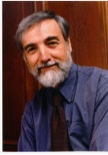
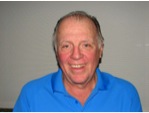
2005 – J. Donald Johnston

2004 – Robert Kosnik
2003 – Lily S. Cheung, FRCP(C)

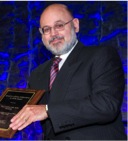
2001 – Pat Mills
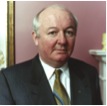
2000 – W. Keith C. Morgan
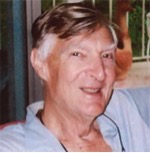
Dr. Morgan qualified as a doctor at the University of Sheffield, UK, in 1953. He emigrated to the United States, as did so many UK graduates at that time in 1957, and moved to London Ontario in 1978. A world renowned specialist in Thoracic and Pulmonary Diseases, he authored and/or contributed to over 50 textbooks and more than 170 articles including his most famous though by no mans most important paper “The rape of the phallus ” which successfully antagonized those surgeons who made a living from circumcision His positions included Chief of Staff, University Hospital, London, Ontario; Head of the Pulmonary Diseases Section, UWO; Director, Chest Disease Services UWO; Professor of Medicine and Chief, Pulmonary Diseases Section, West Virginia University, Morgantown WV; Director, Appalachian Laboratory for Occupational Respiratory Diseases, WV; Chief, Medical Research Station, Appalachian Laboratory, Occupational Respiratory Disease, U.S. Public Health Service. He served as The President of the Maryland Thoracic Society; Chairman of the Environmental Health Committee of the American College of Chest Physicians; Member of the Advisory Board for Occupational Health & Safety Resource Centre, UWO; Member of the Ontario Ministry of Labour Applied Research Awards Committee; President of the Canadian Thoracic Society; and as a board member of the Scientific and Policy Advisors, American Council on Science and Health, among others. He was an Emeritus Professor of Medicine at the University of Western Ontario.
With his passing ends an era; a fierce competitor and articulate campaigner for that which he knew to be the truth, he left in his wake many a sophist and self satisfied administrator strafed by wit and penmanship. Many a resident’s lackadaisical use of the English language resulted in a verbal upbraiding that to this day resonates in their ear when they hear the word “basically”.

2000 – Jean Anne Farmilo, FCBOM, DIH, CCFP
1999 – Walter F. Prendergast
1999 – Ernest Mastromatteo
Ernie had a long and distinguished career in occupational health and safety in Manitoba, Ontario and internationally. In fact, Ernie is considered a pioneer of occupational health and safety in Ontario. Ernie’s first job as a physician was Medical Director for a rural health unit in Virden, Manitoba. He recalls that the health unit comprised four towns and seven municipalities covering an area of about 2,500 square miles.
In 1952 Ernie moved back to Toronto and joined the Division of Industrial Hygiene within the Ontario Department of Public Health under the leadership of Dr. Grant Cunningham. Despite the pressures of a steadily growing family, Ernie found time in the early 1950s to become active as a reservist in the Canadian Army medical corp.
Ernie’s career in the Ontario government progressed smoothly, and in 1968 he became Director of the Industrial Hygiene Division, which later became the Environmental Health Services Branch.
In 1974 Ernie was approached by the International Labour Organization (ILO) and he moved to Geneva, Switzerland and began a new phase of his career that opened up an international perspective for him. In 1976 upon his return to Canada, Ernie left government service and became Director, Occupational Health for International Nickel (INCO Limited) in Toronto. Ernie stayed with INCO until 1985 when he became a Program Director for Occupational and Environmental Health with ORC Canada. In 1994 Ernie became a private consultant and continued to provide expert witness testimony in litigation proceedings both in Canada and the U.S.A.
The Mastromatteo Oration, an award conferred on individuals making a significant contribution to occupational health in Canada, was established in Ernie’s honour in 1991 by the Occupational and Environmental Medical Association of Canada. In 2007, Ernie was made an honorary member of the Royal College of Physicians of Canada for his many contributions to occupational medicine.
1999 – Albert Cecutti, CCBOM
1998 – James R. Nethercott
Dr. Nethercott was born in Hamilton, Ontario, Canada on Oct. 27, 1943. He married his high-school sweetheart, Virginia Ewan Peart, an exceptional woman, whose wit and charm carried over into her many activities, including gardening, racquet sports, and managing her husband’s practice. His father owned car dealerships in Hamilton and imparted to his son an appreciation of cars, as well as a practical understanding of human psychology, which later served him well in medicine.
After receiving his MD degree from Queen’s University in Kingston, Canada, he went on to complete residencies in internal medicine and in dermatology at the University of Toronto. In 1974, he became a diplomate of the American Board of Dermatology and a fellow of the Royal College of Physicians and Surgeons of Canada. He began his academic career at the University of Toronto, teaching and publishing on a range of topics, including African histoplasmosis and novel therapies for epidermolysis bullosa dystrophica, Behçet’s syndrome, psoriasis, and histiocytosis X. His research later focused on contact dermatitis caused by substances encountered in the workplace.
In 1988, after an impressive academic career at the University of Toronto, Dr. Nethercott was recruited by Johns Hopkins University in Baltimore. Board certified in preventive and occupational medicine, he became the head of the occupational medicine program. Dr. Nethercott was particularly interested in health hazards caused by commercial and industrial products, focusing on patch and photopatch testing for diagnostic and prognostic information. He studied the work-related illnesses of many professions and touched the lives of miners, printers, farmers, performing artists, and watermen in addition to those exposed to formaldehyde and chromium among other numerous substances. He served on national and international boards and advisory commitees, including the U.S. Army’s Gulf War Veteran’s Syndrome Committee and was Chairman of the Task force on Smoking Reduction Strategies.
Reviewer for 14 journals, he was on the editorial board of four, including this Journal. He was the author of more than 100 scientific journal articles and 19 book chapters.
Dr. Nethercott’s belief that evolving computer systems would transform medicine was an inspiration to those around him. He was an ardent proponent of pooling information to create databases so that the relationship between epidemiologic data and the biologic effects of environmental exposure on workers would become apparent. He was also an expert advisor on personal computers and could always perfectly and graciously solve any computer-related problem given to him by his colleagues.
Jim and Ginny shared a love of sailing and painstakingly restored a classic sailboat in which they enjoyed many golden afternoons on the Cheseapeake Bay with their family and friends.
1998 – Alice Dong, FCBOM, APBM(OccMed)
Alice Dong is a Canadian and American Board certified occup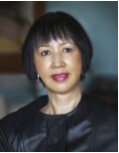
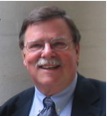
1997 – C. F. Muir
1996 – John R. Martin
John Martin has contributed substantially to occupational medicine research, teaching, and government service, often as a lone voice in the province with few colleagues:
-
-
- He conducted the landmark Labrador West Dust Study, a major contribution to occupational lung disease research in Canada, and continues to make important contributions to the study of the association between silicosis and scleroderma.
- He has served the government of Newfoundland in numerous capacities, often as the sole consultant available in occupational medicine, as Chief Medical Officer for 8 years, and as a member of the Ocean Ranger inquiry.
- He is representative of a “grand tradition” in occupational medicine, having distinguished himself as a leader in one medical specialty (rheumatology) before moving into occupational medicine, bringing with him a keen sense of scientific curiosity and outstanding research acumen.
- He has taught occupational medicine at Memorial University for many years, when it would have been easy to “retreat” back to clinical specialization in rheumatology.
- His combined interests in Northern medicine and occupational medicine have made him an influential and respected figure in Atlantic Canada (including election as President of the Newfoundland Medical Association).
-
1994 – MacDonald Caza
1993 – John Markham
Dr. John Markham was a leading exponent of occupational medicine in Saskatchewan for 18 years, almost alone at times. He played a major role in government policy and designing OH&S legislation in that province. He is perhaps best remembered, however, as an outstanding teacher and mentor at the University of Saskatchewan. He subsequently moved to Alberta and was for five years on the faculty of the University of Alberta, leaving in November 1992. While there, he achieved two particularly noteworthy accomplishments, each with national implications: He organized and served as first Director of the first Canadian Occupational Medicine Residency Training Program. He also established the Distance Learning Program in Occupational Medicine, based on the highly successful Continuing Education Project of the University of Manchester. Today, he continues his interests in international occupational and environmental health issues on the staff of the federal International Development Research Centre (IDRC).
Dr. Markham is therefore honoured for making rigorous and effective specialty training in occupational medicine accessible to a generation of physicians in this country.
1993 – John L. Weeks, MD, CCFP, FCFP, MPH, FCBOM, FACOE
John Weeks received the Meritorious Service Award of OEMAC in 1993. He was recognized for the enormous contribution he made to Canadian occupational medicine as a leader of the Canadian Board of Occupational Medicine. He played a huge role in making it a sturdy pillar of the field in Canada. John was a noted expert on radiation-related hazards and a keen proponent of nuclear energy and peaceful uses of nuclear technology. His other passion was aviation medicine.
John was born in 1926, in Bath, England. In 1943, at the age of 17, he joined the British Army and was mustered in to the Gurkha Rifles. He was later transferred to the Indian colonial army, rising to the rank of captain. He served in India and in what was then quaintly called the Far East. In 1947 he demobbed and returned to the UK, where he enrolled in Saint Thomas Medical School under a special program for returning servicemen.
John graduated with the MBBS in 1953. Just two years later, after hospital appointments for clinical training in obstetrics and internal medicine, including at St. Thomas, he joined the medical staff of London Transport. During his three years there he obtained the Diploma in Industrial Health, in 1957. Aside from two years working as a family physician in Newfoundland, he practiced occupational medicine for the rest of his career, retiring in 1992. He passed away on 15 October 2006, aged 80.
John was most closely associated with the Whiteshell Nuclear Research Establishment, in Pinawa, Manitoba. He joined the Establishment in 1962, and served as the Director of Health and Safety Division. In that capacity he was responsible for the full range of normal occupational medical services and also specialized surveillance for radiation-related hazards. He administered a sizeable research unit, consisting of 45 staff, mostly devoted to epidemiological surveillance of workers potentially exposed to radiation. He was an advisor to the United Nations Environmental Programme and the International Atomic Energy Agency. He published extensively, on both radiation health effects and on the toxicology of coolants used in nuclear reactors. Much of his work was published in bulletins of the Atomic Energy of Canada Ltd. But several appeared in the occupational medicine literature and were reviewed in setting the threshold limit value for polychlorinated biphenyl compounds (PCBs) in the 1970’s.
John discovered the field of occupational medicine early and became its most enthusiastic promoter. He always described himself as a “shop-floor plant physician” and by that he meant to express pride and excellence in the practice of occupational medicine. He taught at the University of Manitoba, examined candidates for the Royal College fellowship examinations, and was active in the Permanent Commission (now the International Commission) on Occupational Health.
However, John is most remembered in Canadian occupational medicine for his contributions to CBOM over the years, as one of the first applicants (in 1980 –the pioneers went through the process themselves) in various offices, as President (1989 – 1991), as a representative in discussions with the Royal College, and as an examiner and administrator and registrar. He was an indefatigable correspondent, bombarding CBOM officers and committee members with scores of letters devoted to improving the organization and the process of certification. Applications from almost all of the candidates for CBOM certification, at every level, passed through his hands during the 1980’s and 1990’s, and he examined a large proportion of them. He wrote detailed evaluations of their preparation and when they would be eligible, for review by other members of the qualifying committee. He was generous, rigorous, and fair. He pondered long and hard on questions such as whether OEMAC and CBOM should merge (the decision was that they should not) and the relationship between CBOM and the Royal College (he saw CBOM as the primary care level of medicine and Royal College fellows as specialists). He was particularly interested in attracting family physicians to occupational medicine, believing that their multivalent talents and broad background prepared them better than most specialty training programs.
1993 – Rodney May
Rodney May has had an extraordinary career in occupational medicine in Canada and is largely responsible for much of the government and academic infrastructure of the specialty that remains today in three provinces:
-
-
- He served as one of the first directs of (at that time) Industrial Health Services in the government of Alberta and in that capacity built the service into what became Alberta Occupational Health and Safety.
- In that capacity he was responsible for setting up the Gale Commission, which led to reform of the basic Occupational Health Act (still in effect as a then – progressive piece of legislation), the restructuring of the Alberta government agency, and the establishment of systems to support occupational health and safety research and education in Alberta.
- He later served the government of Nova Scotia and Ontario in similar positions with great effectiveness.
- In each government position he held, he advocated increased support for university training programs, leading directly to the establishment of university resource centres at U. Toronto, Queens, Western, Waterloo, and Lakehead, and (in Alberta) the Occupational Health Nursing Program at Grant MacEwan Community College and indirectly (through the Gale Commission) at the University of Alberta.
- He served as a tireless advocate for specialty fellowship certification in occupational medicine by the Royal College of Physicians and Surgeons of Canada, at a time (late 1970’s) when there seemed little hope.
- He serves as a personal bridge to British occupational health through his continued involvement in affairs on both sides of the Atlantic.
- He cofounded the Alberta Occupational Health Society (which is still a vital, functioning organization) and as a key member of numerous influential committees and organizations, including the Executive Board of the Canadian Centre for Occupational Health and Safety (and as advocate for an effective and scientifically vigorous centre).
-
1992 – Peter Palmear
1992 – John W. F. Cowell
1992 – James P. Gracie
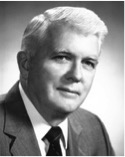
He served as a bomber pilot in the RCAF, for which he was awarded the Distinguished Flying Cross. Jim began his MD at the University of Saskatchewan and completed it at the University of Toronto in 1950. He was a well-regarded General Practitioner in North Toronto for 25 years and was the Medical Director for Union Carbide of Canada for 10 years. Jim led a life that was rich in all things that mattered to him and Lil: family, friends, his patients, community and his church. He loved them all. Jim was an avid golfer and a member of York Downs GC for over 60 years.
1992 – Elizabeth R. Dawson, R.N.
1992 – Edward S. Gibson
1990 – James W. Charters
1990 – Fred C. Mills
1989 – Franklyn Hicks
1989 – Blair Orser
1988 – Serge Donati
Dr. Donati was quite an amazing human being. The love of his life for many years was his wife Clare, followed closely by his five children and, not too far behind came his love for “medicine du travail” – occupational medicine. He graduated as a physician from Laval University in 1949 and shortly there afterwards, married Claire. After three years of specialist training (EENT), he was lured to the remote north shore of the St. Lawrence river and the towns of Godbout (east of Baie Comeau) and then Labrieville where went in to general practice – the kind where you did everything because you had little in the way of back-up help and at times were totally isolated from the rest of the world and had to use all manner of transportation to get around. Serge decided early on that he wanted to widen the scope of his practice and, about the time he moved to Godbout, he started work with Quebec Hydro, Quebec North Shore Paper, and St. Regis Timber. After moving to Labrieville, he continued working with Hydro Quebec. In 1959, Serge moved to Gagnon (until 1964), still as a general practitioner, but also undertaking other roles with the local hospital and with Quebec Cartier mining.
Opting to practice occupational medicine on a full-time basis, he moved to Montreal in 1964 and then Quebec City in 1966, as the eastern zone medical director for Bell Canada – a position he held until 1974 when he returned to his much loved north shore, in Port Cartier, as the medical director for Quebec Cartier Mining Limited – a position he held until 1982. It was during this time that he hired and mentored this author for his first role as a part-time occupational health physician with QCM, – a role which later evolved into a full time role at the Iron Ore Company of Canada.
In 1982, Serge moved back to the Montreal region as Nortel’s medical director – a position he held until 1989. Not content with ending his career there, he continued to work for the CSST as an assessor in the appeal court for work related occupational disease until 1998.
When Serge died in April of 2000, he could count many significant achievements over his lifetime. Throughout his career, he spoke at numerous conferences in Canada and France, often on hearing loss at work and alcoholism. He considered the latter as an illness, in and of itself, with repercussions for both the employee’s work life and personal life.
He was a caring family physician, and an innovator in advancing workplace health in remote (and not so remote) areas of Canada. He mentored younger occupational health physicians and nurses and encouraged them in their chosen profession. Serge was a tireless advocate for his profession – active in many professional organizations including roles with the Ontario and Quebec Occupational Medical Association (the forerunner of OEMAC) and as a director of the AOMA (1976 to 1979).
In 1988, Serge was recognized by his peers for his work in Occupational Medicine and was chosen to receive the Meritorious Service Award.
1988 – J. A. David Brunet
1987 – J. H. Baillie
1987 – Douglas R. Warren
